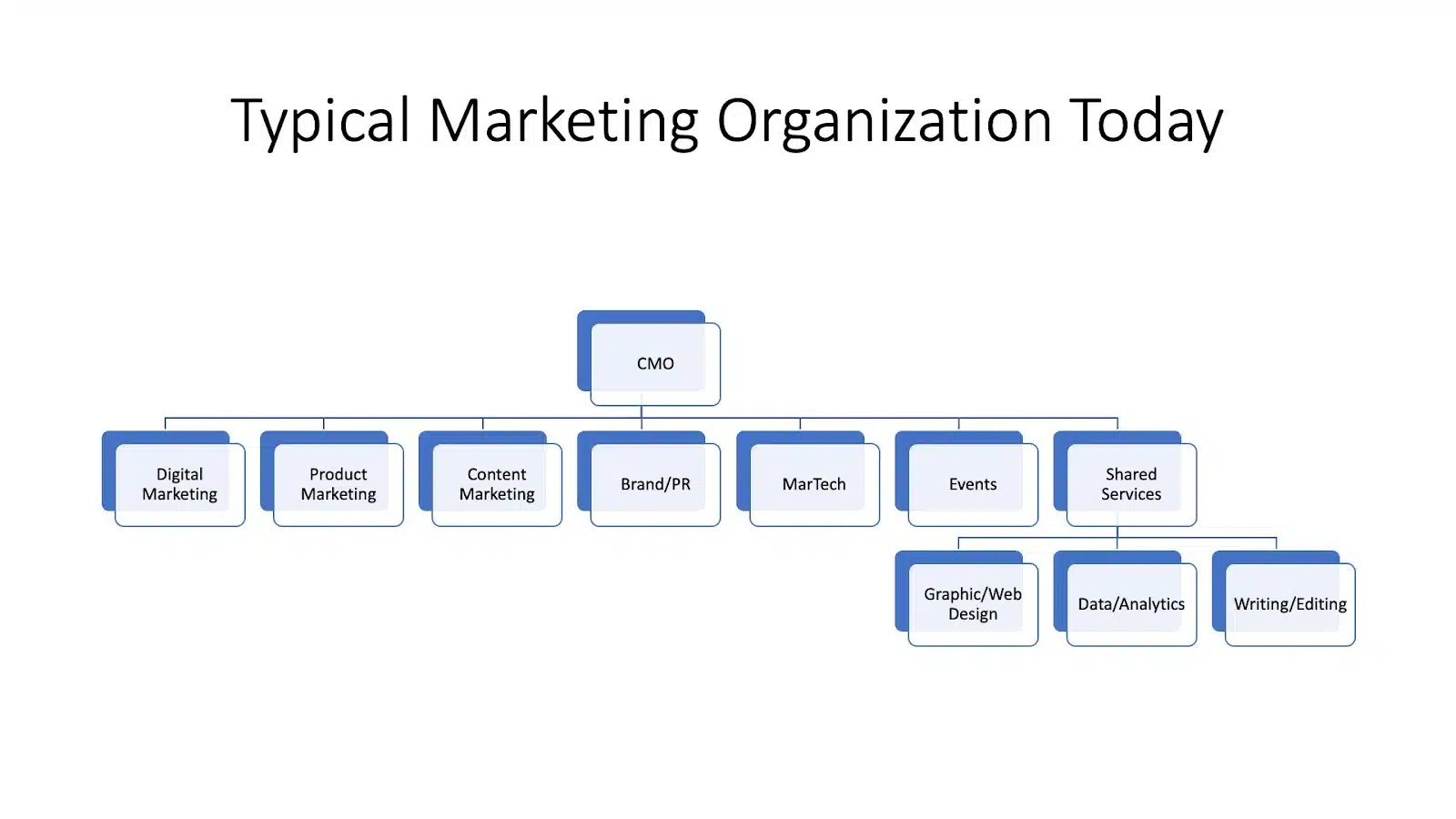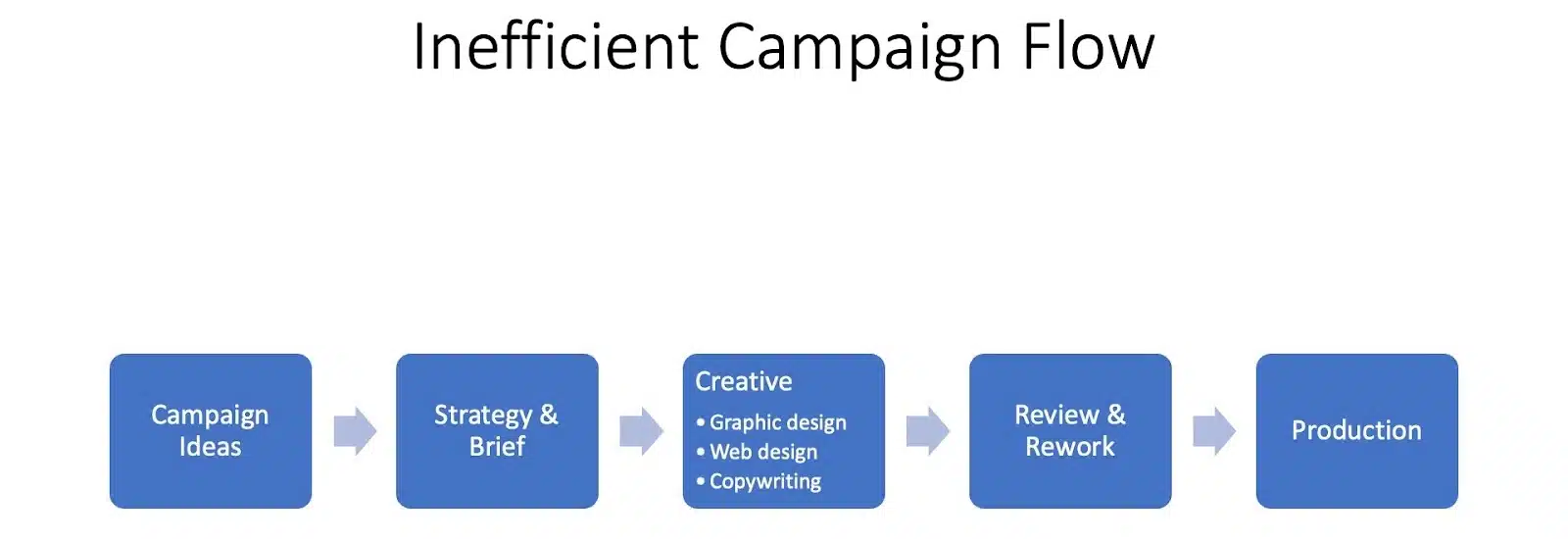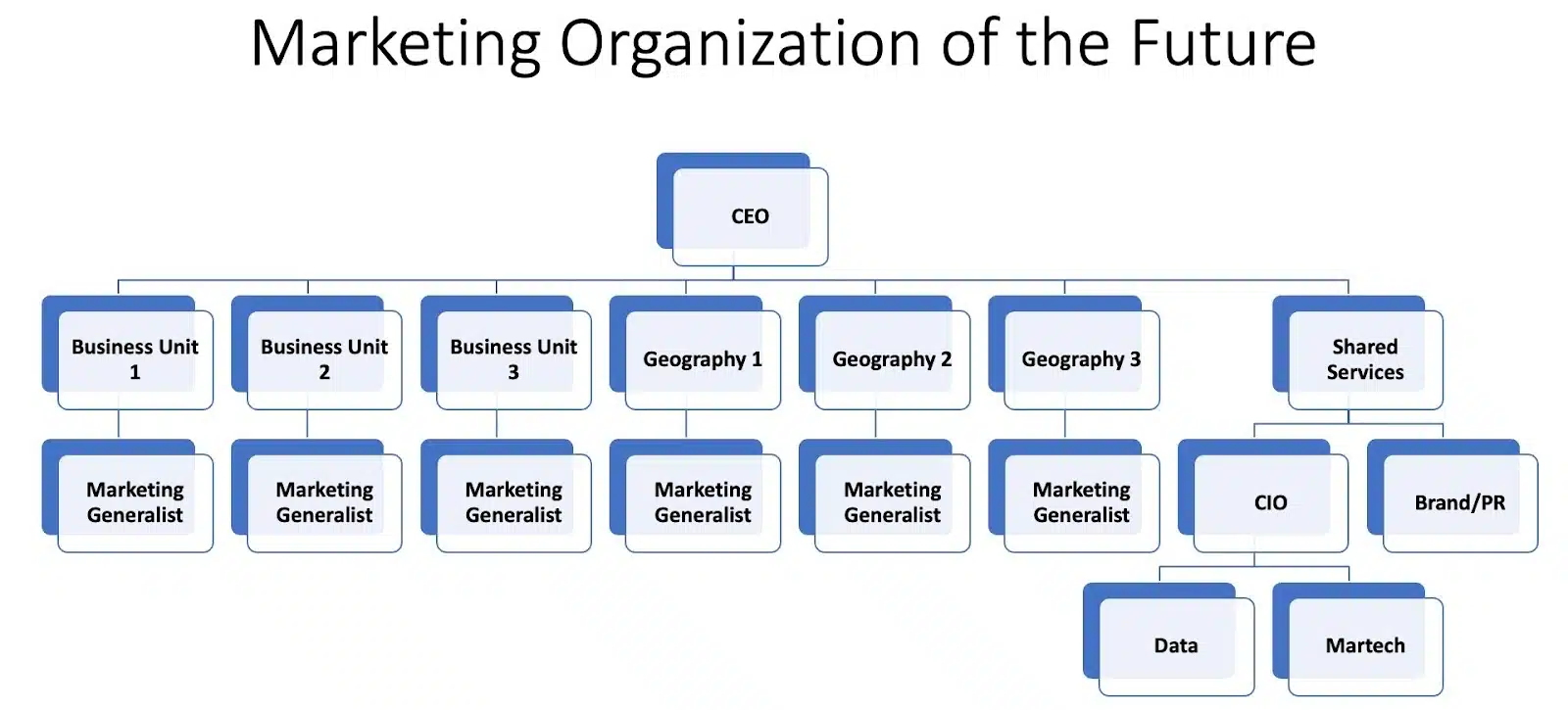Human + machine = marketing powerhouse: How AI empowers the marketing generalist
OpenAI’s Sam Altman predicts AI will handle 95% of tasks outsourced to agencies today. Here’s what it means for the future of marketing.
AI will soon be able to handle up to 95% of the work currently done by marketing agencies, creative professionals and specialists, according to OpenAI CEO Sam Altman.
Here’s how this shift could lead to the rise of the “marketing generalist” — a new type of marketer who uses AI tools to rapidly execute campaigns across various disciplines, such as content, digital, branding and more.
Unpacking AI’s marketing impact
In an interview earlier this year, Altman described what he says will be the impact of AI on marketing:
“Ninety-five percent of what marketers use agencies, strategists and creative professionals for today will easily, nearly instantly and at almost no cost be handled by the AI — and the AI will likely be able to test the creative against real or synthetic customer focus groups for predicting results and optimizing. Again, all free, instant and nearly perfect. Images, videos, campaign ideas? No problem.”
When asked about the timeline for this, Altman said, “Five years, give or take, maybe slightly longer.”
While I think his five-year timeline is optimistic, Altman is probably right that in the future, AI will handle a large portion of what we use agencies, strategists and creative professionals for today. This could have a radical impact on the structure of marketing departments and the daily work lives of marketers and lead to the rise of the marketing generalist.
Dig deeper: AI in marketing: Examples to help your team today
Marketing organizations today are inefficient and outmoded

The structure of the typical marketing organization has not changed significantly in the last 30 years: a CMO directs the work of various marketing managers in silos like digital marketing, product marketing, content marketing, brand/public relations, martech and events. These departments are supported by shared services like graphic/web design, data/analytics and writing/editing. All this leads to a terribly inefficient campaign flow.

The campaign creation process in most organizations can take at least 6-8 weeks to argue about the right strategy, copy and creative. The review and rework stage can take multiple weeks as different stakeholders weigh in with different and often contradictory opinions. Work gets passed from silo to silo, with each silo having its priorities, introducing additional delays into the process.
How the rise of the marketing generalist will impact marketing organizations and workflows
AI has the potential to radically transform today’s typical marketing organization and to wipe out the typical campaign flow as every marketer becomes a marketing generalist and takes over most of the work done today in silos. Many marketing functions and titles that exist today will be wiped out or radically changed in the next 5-10 years.
Today, there are relatively few marketing generalists and those who exist work mainly in early-stage companies, where they must be marketing generalists by necessity. As the companies scale, they tend to hire specialists: the marketing generalist decides to hire a graphic artist or a web designer, deciding rightly that their time is too valuable to create the graphics for an ad or to build a new web design.
But when this happens, something gets lost. The marketing generalist, who has the broadest perspective on the product, the customers and the value proposition, something they have taken months or maybe even years learning, now has to convey that knowledge as best they can in a creative brief.
But what if the marketing generalist could create graphics and web designs through AI, applying all of their knowledge through an AI assistant who has been learning with them as they grew the business?
What if the marketing generalist sat down with the product manager and they co-created a campaign in an hour or two with the help of AI?
How far could this scale? Altman says it could scale pretty far, good enough for 90-95% of the situations marketers handle today through outmoded organizations and campaign flows.
Dig deeper: AI transformation: How to prepare your marketing team
Rapid iteration and experimentation
Another side effect of condensing campaign creation timelines from weeks to hours is that marketing generalists can iterate and experiment rapidly. While a traditional organization is arguing about strategy, copy and creative, the marketing generalist of the future could run 30-40 different tests, getting real data about what customers prefer and what produces the best outcomes.
Organizations that move to a marketing generalist approach with AI assistants will have a tremendous competitive advantage over traditional organizations. They’ll get to market sooner, make decisions based on data, not opinions and be leaner and more agile.
How AI will impact various marketing functions
AI will impact shared services first: when AI-powered tools make it easy to create graphics and web designs, analyze data and write beautiful copy, marketers will no longer use shared services for 90-95% of their needs.
Content marketing and digital marketing will be eliminated next. If AI can write, optimize and place content with the guidance of a generalist marketer, why have a content marketing group?
Why keep this group if AI can optimize digital marketing and run entire campaigns without needing a digital marketing specialist? Maybe 1 in 10 people in content marketing and digital marketing will continue to work in these professions in 10 years.
Marketers employed in martech are probably safe: someone has to evaluate, procure, deploy and maintain that AI-enabled technology. If anything, we may need more martech professionals.
Data (not analytics) is also probably safe. One of the key challenges of many marketing organizations in the age of AI will be to clean up their data and feed it into customized large language models to create custom AI assistants, customer service chatbots and radical personalization.
Analytics, however, will be handled by AI, which will either take over the decision-making or make recommendations to the marketing generalist without the need for report-building and other analytics activities that produce little value on their own.
Brand/PR will have fewer, higher-skill people. AI will take over the enforcement of brand guidelines and AI agents will handle brand promotion and basic PR. A small group of highly skilled brand and PR specialists will create brand voices and experiences and respond to tough PR challenges. Maybe one in three people who work in brand/PR today will still be working in this niche in 10 years.
Product marketers are the most likely group to become marketing generalists. No longer dependent on graphic/web designers, digital marketing specialists, or copywriters, product marketers will become the wizards behind the curtain of AI, guiding the production of much of what we think of as marketing today. The number of marketing generalists will likely increase to perhaps twice the number of product marketers today.
With all of this churn in job titles and responsibilities, there will also be major changes in the structure of marketing organizations.
Organizations will adopt hybrid structures
In the age of AI, organizations are likely to be organized as a network of centralized and decentralized teams organized around business units and geographies.
Marketing may not exist as a primary department reporting to the CEO. Instead, each business unit and each geography will have one or more marketing generalists, with product-oriented generalists centrally located and customer-experience-oriented generalists decentralized to each geography.
Here is what the organization of the future may look like:

Note that in this organization, there is no CMO, and there is no marketing organization. Instead, one or more marketing generalists are embedded in business units and geographies, where, with the help of AI, they are responsible for digital marketing, product marketing, content marketing, local PR and local events previously held by specialty departments.
This will also be an opportunity to make marketing more responsive to the needs of the business units and the geographies. If marketing is embedded in these business units and geographies, they will become more knowledgeable of and accountable to the needs of their internal stakeholders. That’s a good thing and may answer a long-standing complaint of many other parts of the business who have felt that marketing is not responsive to their needs.
Final thoughts
AI is likely to have a radical impact on the typical marketing organization. Marketers will become generalists, with specialization aligned more on business units, product knowledge and geographies than skill sets. The CMO position may be eliminated in the organization in the future. Marketers must prepare for a bumpy ride over the next 5-10 years.
Opinions expressed in this article are those of the guest author and not necessarily MarTech. Staff authors are listed here.
Related stories
New on MarTech